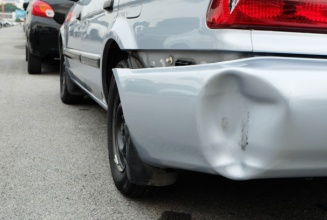Being involved in a hit-and-run accident can be a disorienting and stressful experience. In Florida, like in many states, hit-and-run accidents are becoming more and more common. If you find yourself in this situation, it is crucial to know what steps to take to protect yourself and seek justice.
What Is Considered a Hit-and-Run in Florida
A hit-and-run is an accident in which a driver leaves the scene without stopping to exchange information or render aid, as required by law. This can involve hitting another vehicle, a pedestrian, or property such as a fence or mailbox. Regardless of the severity of the accident, failing to stop and fulfill legal obligations is considered a hit-and-run offense in Florida and can have major consequences.
Florida Hit-and-Run Laws
Hit-and-run accidents are a serious offense in Florida, and the state has strict laws in place to address these incidents. In 2014, Florida hit-and-run laws were modified with the passage of the Aaron Cohen Life Protection Act after a cyclist and father of two was killed by a hit-and-run driver.
Criminal Penalties
After an accident, drivers must stop at the scene, provide their name, address, vehicle registration number, and offer aid to anyone injured. Failing to fulfill these obligations can lead to severe consequences, including fines, license suspension, and even imprisonment.
Misdemeanor vs. Felony
In Florida, a hit-and-run accident is generally considered a misdemeanor if it involves only property damage. This means that if a driver leaves the scene of an accident where only vehicles or property have been damaged, they may be charged with a misdemeanor offense.
However, a hit-and-run accident is considered a felony in Florida if it involves injuries or fatalities to another person. If a driver leaves the scene of an accident where someone has been injured or killed, they may face felony charges, which can result in more severe penalties, including fines, license suspension or revocation, and imprisonment.
The severity of the charges and potential penalties can vary depending on factors such as the extent of the injuries, whether the driver was under the influence of alcohol or drugs at the time of the accident, and whether the driver has any prior criminal history related to traffic offenses. It's essential to consult with a legal professional to understand the specific circumstances of your case and to ensure that you receive appropriate legal guidance and representation.
Statute of Limitations
Charges for hit-and-run offenses, like most other charges, must be filed within a certain time frame after the accident occurs. In Florida, the statute of limitations for filing criminal charges in hit-and-run cases typically ranges from 2 to 4 years, depending on the severity of the offense.
For hit-and-run accidents resulting in only property damage, the statute of limitations is generally 2 years. However, for accidents involving injuries or fatalities, the statute of limitations is extended to 4 years.
Civil Liability
Apart from criminal penalties, individuals may also face civil liability for damages caused by the accident, such as medical expenses and lost wages.
How To Report a Hit-and-Run
Reporting a hit-and-run accident to the proper authorities is essential for launching an investigation and holding the responsible party accountable. In Florida, you can report a hit-and-run accident by calling 911 or contacting your local police department.
What To Do After a Hit-and-Run Accident
If you are the victim of a hit-and-run accident in Florida, there are several important steps you should take to protect yourself and your legal rights. If you are the victim of a hit and run accident, here are some crucial steps you should take to protect your rights:
- Contact Law Enforcement: Call 911 to report the accident and request that law enforcement officials are dispatched to the scene. Even if there are no injuries, it is essential to report the incident and gather evidence for your claim.
- Seek Medical Attention: If you or anyone else involved in the accident is injured, seek medical attention immediately. Your health and well-being are top priorities, and documenting any injuries is crucial for your claim.
- Collect Evidence: If possible, gather evidence at the scene of the accident, including photos of the damage, license plate numbers, and any witness statements. This information will be invaluable when filing an insurance claim or pursuing legal action.
- Notify Your Insurance Company: Contact your insurance company to report the accident and initiate the claims process. Your insurance policy may provide coverage for medical expenses, lost wages, and other damages resulting from the hit and run accident.
- Consult with an Attorney: Finally, seek legal guidance from an experienced personal injury attorney. The right legal team is essential to help you navigate the complexities of your case, negotiate with insurance companies on your behalf, and pursue the compensation you deserve for your injuries and losses.
Quality Legal Representation for Florida Hit-and-Run Victims
Navigating the aftermath of a hit-and-run accident can be complex and overwhelming, but you don't have to face it alone. With the help of experienced legal representation, you can protect your rights and pursue the compensation you deserve for your injuries and damages.
If you have been the victim of a hit-and-run accident in Florida, you could be entitled to significant compensation. At Coker Law, we’re by your side every step of the way. Call (904) 290-1936 today or visit us online for a free legal consultation.




